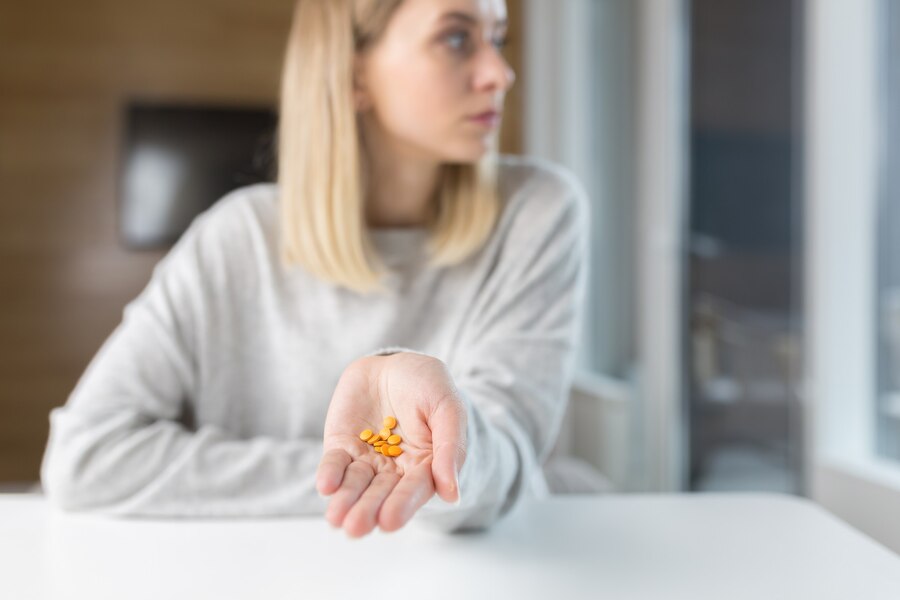Inpatient Treatment Programs
In person treatment programs stand at the heart of addiction and mental health support offering a organized and immersive setting, for those looking to recover. These programs provide assistance and medical oversight in an environment enabling individuals to concentrate entirely on their healing journey without the interruptions and temptations of everyday routines. This article delves into the specifics of treatment the advantages it brings and its significant impact, on attaining recovery.
What is Inpatient Treatment?
Inpatient treatment involves receiving therapeutic care within a facility, where individuals reside full time to receive comprehensive support, for addiction or mental health issues. This approach provides care with supervision, medical assistance and structured therapy sessions. Unlike outpatient programs inpatient treatment necessitates residents to live on site creating a controlled environment that’s free from pressures and triggers.
The main objective of treatment is to stabilize individuals meet their needs and establish a groundwork, for long term recovery. It typically includes a mix of individual and group therapy sessions, medical attention and educational programs tailored to meet the requirements of each resident. The immersive nature of care helps individuals develop coping mechanisms gain insight into their condition and form a community for sustained healing.
Benefits of Inpatient Treatment Programs
Inpatient treatment programs offer several key benefits for individuals seeking recovery from addiction or mental health disorders. One of the primary advantages is the comprehensive and structured environment that supports intensive treatment. Residents benefit from 24/7 supervision and access to medical professionals, which ensures that their physical and psychological needs are promptly addressed.
Additionally, inpatient treatment provides a distraction-free environment that allows individuals to focus solely on their recovery. The immersive nature of the program helps residents build new habits, learn coping skills, and develop a deeper understanding of their condition. This intensive focus often leads to significant progress in a shorter period compared to outpatient settings.
Types of Inpatient Treatment Programs
Inpatient treatment programs vary depending on the facility and the specific needs of the individuals being treated. Common types of inpatient programs include:
- Residential Treatment Programs: These programs offer a structured living environment with a focus on intensive therapy and medical care. Residents participate in daily therapeutic activities, including individual and group therapy, educational sessions, and life skills training.
- Therapeutic Communities: These are long-term residential programs that emphasize community living and mutual support among residents. Therapeutic communities often have a strong focus on personal responsibility and community involvement as part of the recovery process.
- Medical Detoxification Programs: These programs provide specialized care for individuals undergoing detoxification from substances. Medical detox facilities offer 24/7 medical supervision to manage withdrawal symptoms and ensure safety during the detox process.
Daily Structure and Activities in Inpatient Programs
The daily structure of inpatient treatment programs is designed to provide a balanced and therapeutic routine. Each day typically includes a combination of individual therapy sessions, group therapy, educational workshops, and recreational activities. The structured schedule helps residents build a sense of routine and discipline, which is essential for recovery.
Activities may include skill-building exercises, mindfulness practices, and opportunities for physical exercise. The goal of these activities is to promote overall well-being, enhance self-awareness, and develop healthy coping mechanisms. Additionally, residents often participate in community meetings and support groups to build connections with others in similar situations.
Medical and Therapeutic Services Offered
Inpatient treatment programs offer a wide range of medical and therapeutic services to address the needs of individuals in recovery. Medical services may include detoxification, medication management, and regular health assessments. These services ensure that residents receive the necessary medical care to manage withdrawal symptoms, co-occurring health conditions, and any other physical concerns.
Therapeutic services encompass various evidence-based approaches, such as cognitive-behavioral therapy (CBT), dialectical behavior therapy (DBT), and motivational interviewing. These therapies help individuals address the psychological aspects of addiction, develop coping skills, and work towards personal goals. Programs also often include family therapy to address relationship issues and involve loved ones in the recovery process.
Length of Stay: How Long Will You Be in Treatment?
The length of stay in an inpatient treatment program can vary depending on the individual’s needs, the type of program, and the facility’s guidelines. Generally, inpatient programs range from 30 days to 90 days, though some programs may offer longer stays for those requiring extended care.
The duration of treatment is tailored to each individual’s progress and specific treatment goals. Factors such as the severity of the condition, response to therapy, and personal circumstances influence the recommended length of stay. A thorough assessment at the beginning of the program helps determine the appropriate length of treatment and ensures that individuals receive the care they need for successful recovery.

What to Expect During Your Inpatient Stay
During their stay, at the facility patients can expect an organized setting dedicated to aiding in their recovery. Upon arrival residents typically undergo an evaluation to create a treatment strategy. This strategy comprises a mix of counseling sessions, medical attention and daily tasks tailored to meet their requirements.
Residents will engage in activities, such as one, on one and group therapy sessions, educational seminars and skill enhancement exercises. The daily schedule is structured to offer a blend of planned activities and personal time enabling individuals to concentrate on their healing journey while also participating in endeavors that enhance their well being.
Role of Medical Supervision in Inpatient Care
Medical supervision plays a critical role in inpatient treatment programs. The presence of medical professionals ensures that residents receive continuous care and monitoring throughout their stay. This includes managing withdrawal symptoms, addressing any medical complications, and providing medication as needed.
Medical supervision also involves regular health assessments and evaluations to track progress and make necessary adjustments to the treatment plan. The goal is to provide a safe and supportive environment where individuals can focus on their recovery while receiving the medical care required for their overall health and well-being.
Family Involvement in Inpatient Treatment
Inpatient treatment programs often emphasize the importance of involving families. They typically offer family therapy and support services to tackle relationship issues educate family members, on addiction and recovery and create an atmosphere. By including family members in the treatment process communication can improve relationships can. A nurturing environment can be established for the individual undergoing recovery.
Family involvement plays a role in ensuring that loved ones comprehend the challenges of recovery and are able to offer support throughout and after the inpatient phase. It also enables families to address their needs and devise strategies, for supporting their recovering family member in the long term.
Transitioning from Inpatient to Outpatient Care
Transitioning from inpatient to outpatient care is a critical step in the recovery process. Outpatient programs provide ongoing support and therapy after an individual leaves the residential setting. This transition allows individuals to continue their recovery while gradually reintegrating into their daily lives.
Effective transition planning involves developing a comprehensive discharge plan that includes follow-up appointments, continued therapy, and support resources. This plan helps individuals maintain the progress they made during their inpatient stay and addresses any challenges they may face as they return to their home environment.
Cost and Insurance Coverage for Inpatient Treatment
The price of staying in a hospital, for treatment can vary significantly based on where you go how long you. The kind of program you choose. Many treatment centers provide aid. Collaborate with insurance companies to help handle the expenses. It’s crucial for individuals and their families to look into insurance coverage options and grasp the side of treatment before getting admitted.
Insurance plans, for hospital treatment might cover part or all of the costs depending on the plan. Its recommended to reach out to your insurance providers to confirm what is covered and check out payment choices. Some facilities also offer fees or installment plans to make treatment more affordable.
The Role of Inpatient Treatment in Successful Recovery
Inpatient treatment programs provide a vital foundation for individuals seeking recovery from addiction or mental health disorders. By offering a structured, supportive, and medically supervised environment, these programs help individuals address their immediate needs and build a strong basis for long-term recovery. If you or a loved one is considering inpatient treatment, reach out to us at Couples Rehabs to learn more about our programs and how we can support your journey towards successful recovery.
-
What is inpatient treatment, and how does it differ from outpatient care? Inpatient treatment involves residing at a treatment facility 24/7, providing intensive therapy and support. Unlike outpatient care, it removes individuals from their daily environment to focus on recovery.
-
What are the benefits of inpatient treatment programs? Inpatient treatment offers a structured environment, constant medical supervision, and access to a support network. It allows individuals to focus solely on recovery without external distractions.
-
How long is a typical inpatient treatment program? The duration of inpatient treatment varies depending on individual needs and the severity of addiction. Programs typically range from 30 to 90 days, but longer stays may be necessary.
-
What kind of therapies are typically offered in inpatient treatment programs? Inpatient treatment programs often incorporate a combination of therapies, including individual, group, and family counseling, as well as holistic approaches like yoga and meditation.
-
What is the role of family involvement in inpatient treatment programs? Family involvement is crucial for long-term recovery. Many inpatient treatment programs offer family therapy and education to support loved ones throughout the treatment process.
-
How can I find an inpatient treatment program that meets my needs? Research treatment centers, consider factors like location, cost, insurance coverage, and treatment modalities. Reading reviews and seeking recommendations can also be helpful.
-
What is the cost of inpatient treatment, and are there financial assistance options? The cost of inpatient treatment varies depending on the facility and level of care. Many programs offer financial assistance options, including sliding scale fees and insurance coverage.
-
What is the aftercare process following inpatient treatment? Aftercare involves continued support and therapy to prevent relapse. Inpatient programs often provide resources and guidance for transitioning to outpatient care or sober living.
-
Can I continue working while in inpatient treatment? Most inpatient treatment programs require full-time participation, limiting the ability to work during treatment. However, some programs may offer options for limited work or volunteer opportunities.
-
What is the success rate of inpatient treatment programs? While individual outcomes vary, inpatient treatment programs have proven effective in helping individuals achieve long-term sobriety. Factors like program structure, therapy modalities, and patient engagement contribute to success.






Recent Comments